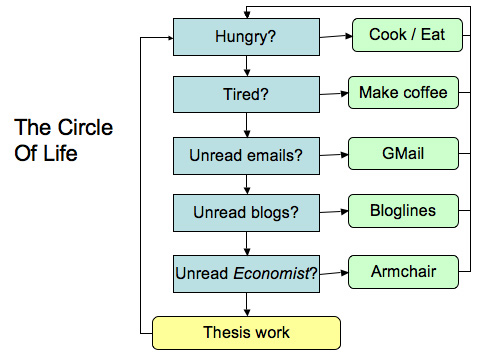Chapter XII of Kuhn’s Structure of Scientific Revolutions is a brilliant and highly convincing account of the historical nature of changed thinking in scientific communities, on matters fundamental enough to define paradigms. While he doesn’t use the analogy, it strikes me as being very similar to the processes of natural selection.
The first adopters of a new paradigm strike upon it for a complex combination of reasons. Included among them are vague aesthetic senses, personal prejudices, and the like. Because of the comprehensive nature of ‘normal’ scientific investigation within the existing paradigm, such meanderings are generally unlikely to be rewarded. That said, if they can win over a few people and develop to the point where they become evidently useful, they have the chance to win over the scientific community as a whole. Naturally, this is easiest to do in times of crisis: especially when the new paradigm seems to help resolve the questions that lie at the core. Kuhn rightly identifies how theories that do an especially good job of predicting effects unobserved until after predicted are unusually good at winning converts.
Consider the development of any novel biological phenomenon. The earliest creatures to undergo a significant mutation probably get eradicated as a result. Only once an alteration is at least benign and at best somewhat useful can we expect any number of beings to be found in the world with it. One can only imagine how many trillions of bacteria snuffed themselves out in the course of random variations that eventually led to things like more efficient cellular respiration, or the development of motion by flagella, or the existence of symbiotic modes of living.
Of course, I like the analogy because it serves my earlier arguments that it is practical usefulness that permits us to argue that one scientific perspective is better than another. Technology, in particular, lets us separate fruitless theory from the fruitful sort, as well as comprehend when seemingly incompatible views are just complex reflections of one another.
The current argumentation about whether string theory is ‘science’ or not strikes at this directly. String theory might be seen as the evolution of a new limb that hasn’t quite proved to be terribly useful yet. Driven by the kind of aesthetic sense that make Brian Greene call his book about it “The Elegant Universe” string theorists are engaged in the kind of development that might eventually lead to a resolution, as described by Kuhn.
PS. Part of the reason natural selection is so frequently useful for understanding what is going on in the world is because of how it is predicated upon an illuminating tautology: namely how arrangements that are stable in a particular environment will always perpetuate themselves, whereas those which are unstable will not. This applies to everything from virtual particle formation at the sub-atomic scale to the success and failure of businesses. That said, it should be noted that the ‘system’ in which businesses actually operate is distinctly different from the ideal form envisioned by the most vocal advocates of free markets. Crime, deceit, and exploitation may be important aspects of that system, in addition to innovation and individual acumen.

